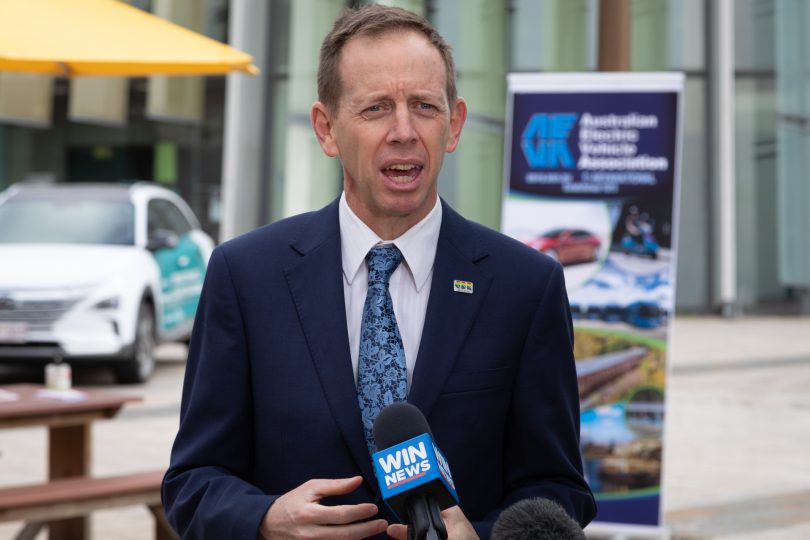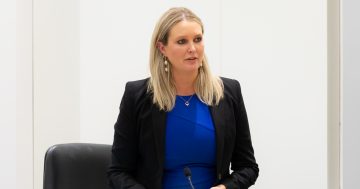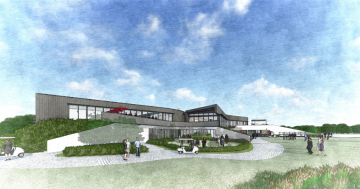
The ACT Government has released a discussion paper that proposes capping individual bet limits at $5 and setting $100 credit limits. Photo: File.
Individual poker machine bets would be capped at $5 and a player would only be able to put $100 credit in the machine at any one time if a proposed central monitoring system (CMS) is introduced in the ACT.
The changes, outlined in a discussion paper released this morning by Minister for Gaming Shane Rattenbury, would theoretically help reduce gambling harm because they would at least “slow a person down”.
It’s estimated around 44,000 Canberrans are affected by gambling harm, be it personal or second-hand, according to a 2019 survey, while nearly $2 billion was spent on poker machines in the financial year 2018-19 (pre-pandemic).
A total of $166.9 million of this was retained by the venues after paying out winnings.
Currently, individual poker machine bets, which is how much you can spend with one push of the button, are capped at $10 and there is no legislated credit limit. In practice, however, machines have a credit limit of either $10,000, $7500 or $5000.
“Reducing the bet to $5 will halve the amount of money a person could theoretically spend and lose in one hour of play from $12,000 to $6000,” Mr Rattenbury said.
“The new credit limit will also introduce breaks in play that may allow a person to reconsider whether they want to keep spending and losing money on the pokies.”

Minister for Gaming Shane Rattenbury said the reforms would not stop problem gambling but would help limit it. Photo: Michelle Kroll.
Mr Rattenbury acknowledged that changing the bet and credit limits would not stop problem gambling entirely, but would mean people could not gamble at the same rate as usual.
As there is not yet the technical capability to introduce the proposed reforms, an IT system would need to be introduced to connect all poker machines across the Territory via a network.
This would also improve oversight of poker machines for anti-money laundering and counter-terrorism financing purposes and reduce the administrative and taxation burden on clubs and the government, Mr Rattenbury said.
It could also strengthen the ability to enforce self-exclusion policies, but this remains up for discussion.
The ACT is the only jurisdiction in the country, excluding Western Australia, that doesn’t yet have a CMS.
A CMS would cost between $11 million and $18 million, and it’s not yet known exactly who would foot the bill, although Mr Rattenbury anticipated the government would pick up some of the tab and clubs would pay a monthly fee per machine to a private provider. The government would go to tender to find this company, which would likely operate the system under a long-term exclusive licence.
However, Mr Rattenbury said today’s release of the discussion paper was “just the start of a conversation”, and much of the finer details about costing were yet to flesh out.
Despite the hefty price tag, Mr Rattenbury said technical consultant BBM Australia had proven this to be the most cost-effective way to action the change.
One alternative, which would have meant physically changing poker machines, could have cost up to $73 million.
Further down the track, the CMS would allow for the introduction of other harm-reduction measures such as cashless gambling and for a person to make a pre-commitment to money and time spent on the machine.
It’s anticipated the CMS won’t be live until 2024.
The proposed reforms were presented to ACT clubs yesterday, and Mr Rattenbury anticipated some pushback from clubs given the profits currently brought in by the 3700 or so poker machines across the Territory.
That number should fall to 3500 by 1 July 2025.
However, Mr Rattenbury said he hoped an extensive consultation process would “avoid the traditional barney between the clubs and the government”.
Mr Rattenbury acknowledged that the clubs would not have led this reform themselves but he said the government was “serious about having a dialogue, and although the policy end goal is clear, there are a range of ways we can get there”.
The proposed harm-reduction reforms were set out in the 2020 Labor-Greens Parliamentary Agreement and the paper has been endorsed by Mr Rattenbury’s Labor and Greens colleagues in Cabinet. That’s despite a motion, which was raised by Mr Rattenbury in the last Assembly, that called on the government to implement similar changes, being voted down by his Labor counterparts.
The discussion paper is open for public consultation until 3 June 2022 and a draft bill containing the legislative changes necessary for the reforms will be released shortly. The technical advice provided to the government is also publicly available.
The ACT Government will also meet with the licensed gaming machine operators, the Community Clubs Ministerial Advisory Council, and harm reduction advocates throughout the process.
A swathe of other measures intended to help move ACT clubs away from their reliance on poker machines is also underway. These include a poker machine buyback scheme, a fund helping them invest in diverse revenue streams and an energy efficiency upgrade fund.
Mr Rattenbury said it was now time to move beyond these support initiatives.



















